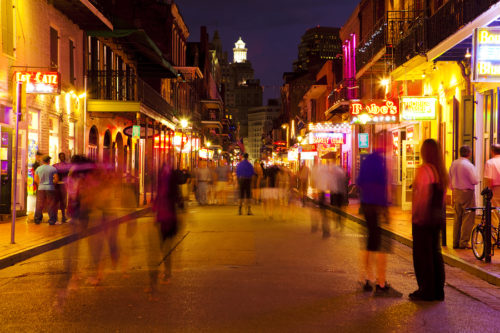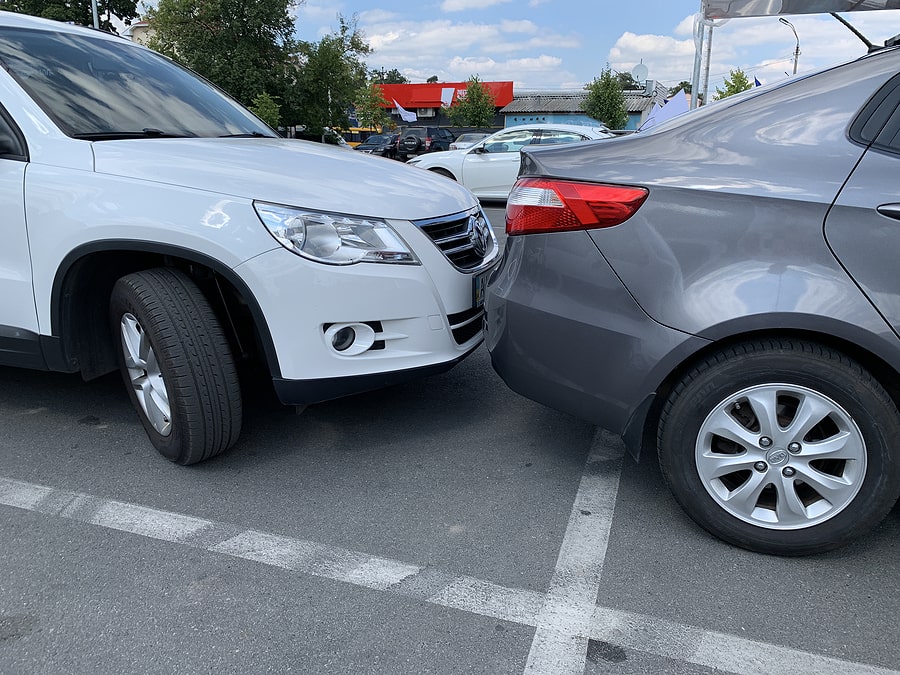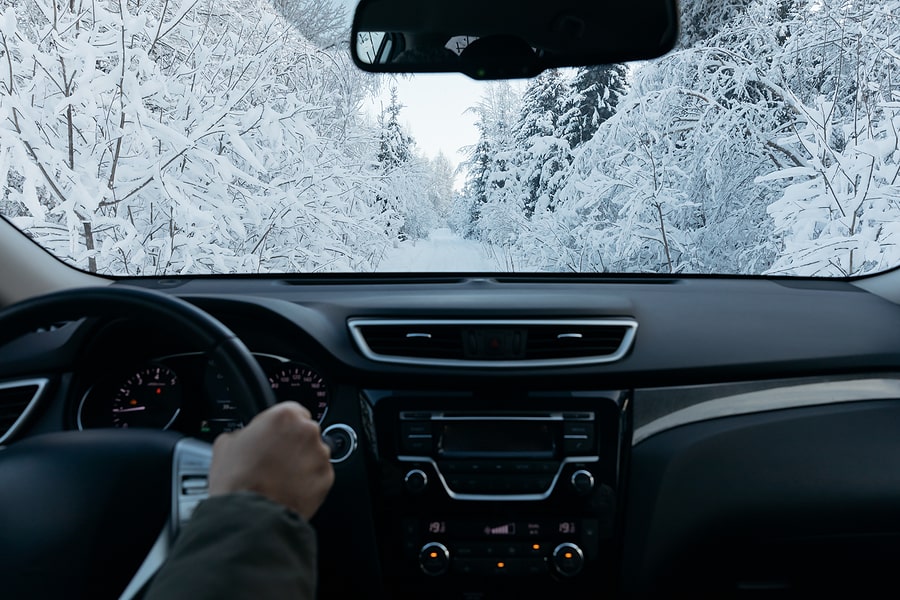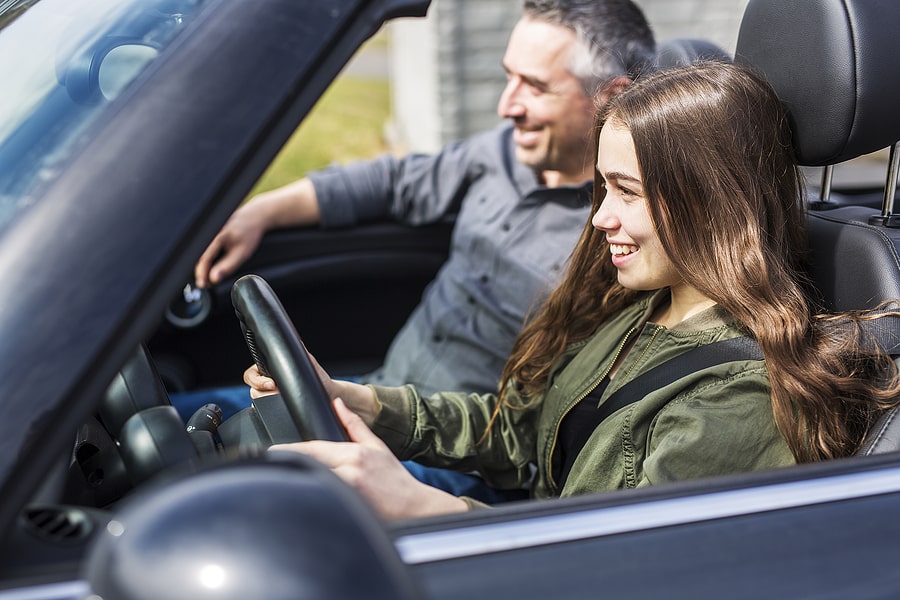Whenever someone asks me if New Orleans is dangerous, I CLENCH MY TEETH. On one hand, I want to shout “No way! It’s a GREAT city!” On the other hand, I’m a personal injury lawyer, so I regularly see the injuries and tragic losses people suffer in New Orleans.
So, here’s the thing. New Orleans, like any city, has unseen dangers that can bring harm to the innocent and unwary. I’m not talking about crime, necessarily. Yes, people get hurt in crimes down here, like anywhere else. More frequently, however, the real dangers that confront residents and visitors to the Crescent City are the everyday conditions that increase the likelihood of catastrophic accidents and life-altering injuries.
What kind of accidents and injuries, you say?
Traffic Accidents
There are over 200,000 licensed drivers in Orleans Parish. They and other drivers from neighboring Parishes and states fill the streets of New Orleans every day. Predictably, traffic accidents result. Lots and lots of traffic accidents.
According to the LSU Center for Analytics & Research in Traffic Safety, in one recent year, Orleans Parish saw more than 20,000 motor vehicle accidents on its highways and byways. A little over 6,300 of those resulted in fatalities or injuries. The rest, 13,680 of them to be precise, involved only property damage (that we know if, at least). These accidents ranged from minor fender benders that caused little more than an annoyance to major wrecks that totaled the cars and trucks involved. A strikingly high proportion of the accidents in New Orleans every year—over 50 percent, in fact—happen at in-town intersections.
What leads to traffic accidents in New Orleans, particularly so many of them at intersections? I don’t know for sure, but I can make some educated guesses:
- Tight streets and crowds. New Orleans was founded in 1712. Its layout reflects its past. The streets and sidewalks of the Crescent City just weren’t designed to accommodate the amount of pedestrian and traffic that occupy them today. With crowding comes hazards, and with hazards, accidents.
- Drinking and celebrating. The Big Easy’s storied reputation as a center of music and revelry comes with a downside: motor vehicle accidents involving alcohol consumption, usually by a driver but sometimes by a cyclist or a pedestrian, too.
- Infrastructure. New Orleans is still a work (or re-work) in progress. City government is making improvements to roads, bridges, and traffic control, but those efforts take time and money. When roads fall into disrepair and traffic lights stop working, the odds of tragic accidents rise.
For the most part, as a personal injury lawyer, I focus on New Orleans traffic accidents that caused injuries and fatalities. What I know about those accidents is that they inflicted a world of hurt, literally and figuratively. If my clients are lucky, they escape accidents with broken bones, aches, and sprains. As the numbers above bear out, however, drivers, passengers, and pedestrians die in traffic accidents in NOLA every year, and many more see their lives upended by severe injuries, such as spinal cord damage, that inflict a lifetime of health complications, practical limitations, and extreme financial difficulty.
Premises Accidents
In private homes and commercial establishments throughout New Orleans, every day, people slip, trip, stumble, lose their balance, and fall. Most of those people get back up nursing nothing more than a bruised ego. Some of them STAY DOWN because the fall has left them SERIOUSLY INJURED.
Under Louisiana law, owners of premises have a duty to protect visitors from unreasonably dangerous conditions that are not “open and obvious”. What, exactly, that means in practice depends on the facts of a given case. HERE’S WHAT I CAN TELL YOU FOR CERTAIN. There are LOTS AND LOTS of buildings in New Orleans that, because of their age and disrepair, hide dangers that can cause someone to fall and to sustain terrible injuries.
For example, the periodic reports of people falling from balconies. Some of those tragic accidents happen when someone leans out over the railing just a little too farand tumbles over. Just as often, however, balcony falls happen because a balcony railing gives way unexpectedly. Now, I don’t know about you, but those cases seem to me like an “unreasonably dangerous condition”!
The same goes for stairways. Many NOLA buildings sport narrow, steep stairs, another vestige of how buildings were designed and built in le bon vieux temps. Anyone who has climbed and descended an older staircase knows how tricky it can be to keep their balance when a step is uneven or when a banister is not properly secure. Also, floorboards and tiles that have warped or cracked from years in the Big Easy’s humidity and heat (and the occasional flood). Most people simply expect to have steady footing when they walk into a home or business.
What happens in these accidents? TRUST ME: They can get bad. I have seen fall victims who have suffered from broken wrists and hips, concussions, brain injuries, spinal cord injuries, slipped discs, torn knee ligaments, dislocated shoulders, lacerations, and abrasions. Older New Orleans residents and visitors face extra risk from these sorts of accidents. Falls are one of the leading causes of hospitalizations for Americans 65 and older, according to the Centers for Disease Control and Prevention.
So, let me give you a bit of SOUND advice. When going out and about in New Orleans, WATCH YOUR STEP. Hold on tight to railings, banisters, or a companion if your footing looks unsteady. Take care when it has been raining outside to avoid slippery floors. Please, oh please, DON’T LEAN TOO HARD ON A BALCONY RAILING. Do you really want to learn the hard way if it’s strong enough to hold you?
Crowd and Celebration-Related Accidents
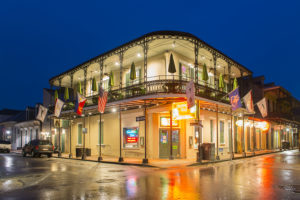
Unfortunately, “most people” isn’t everyone.
Every year, without fail, our city’s celebrations take a real and devastating human toll on the innocent and unsuspecting. That cost is, perhaps, inevitable when you combine large crowds, alcohol, and event management services stretched too thin to keep everyone safe. However, just because injuries and fatalities at large events cannot be prevented does not make them any less tragic and costly for those affected by them.
Allow me to illustrate. In researching this blog post, I came across an article on MyNewOrleans.com written by New Orleans doctor Brobson Lutz, MD, describing the sorts of medical emergencies that get treated by New Orleans EMTs and emergency medicine doctors during Mardi Gras.
Suffice to say, it doesn’t paint a pretty picture.
Broken wrists, hips and ankles, along with various degrees of scrapes to major lacerations occur. Besides the occasional parade goer run over by a float or some other vehicle, Dr. Elder said serious reoccurring injuries are caused by jumping over fences and other barriers. Besides broken bones, jumping over wrought iron fences separating many of the sidewalks from front yards especially uptown lead to serious leg, thigh, and scrotum wounds that hurt even to write about.
Need I say more? I didn’t think so…
Construction Site Accidents
New Orleans is constantly in the process of being rebuilt. New buildings rise, old buildings get renovations, and government repairs roads and infrastructure. Construction is often a MESSY, DIFFICULT JOB. Louisiana workers who make their living on a construction site face all sorts of dangers on the job. They work at high heights with heavy equipment and often-flammable materials. Sometimes, those dangers lead to CATASTROPHIC INJURIES AND FATALITIES.
In one notorious case, upper floors of the then-under-construction Hard Rock Hotel on Canal Street in New Orleans collapsed, killing three construction workers and injuring many more. In the wake of that tragedy, local news has reported irregularities in the construction of the hotel that may have led to the collapse. One construction worker who had spoken out about dangerous conditions on the construction site now faces deportation, complicating ongoing government investigations of the collapse. Families of the workers killed in the collapse have filed lawsuits alleging wrongful death. Frankly, it’s a miracle many, many more people did not get hurt or lose their lives.
The Hard Rock collapse and its aftermath illustrate the sorts of dangers and complications New Orleans construction workers face on the job. It has raised some uncomfortable questions about whether the public can stay safe when workers feel at risk if they speak out about dangerous conditions. However, the public resolves those issues, CONSTRUCTION WORKERS NEED LEGAL ADVOCATES to fight for their rights when their bosses and developers cut corners on safety.
What Can You Do to Make New Orleans Less Dangerous?
Look, let me be straight with you. I’ve been a personal injury lawyer practicing long enough to know that no one, no matter how careful they try to be, can eliminate danger from their lives. You cannot lead a full and fulfilling existence in New Orleans or have a meaningful and enjoyable vacation down here (or anywhere else, for that matter) without facing some risks. THAT’S JUST HOW LIFE GOES.
That doesn’t mean; however, you shouldn’t TRY TO STAY SAFE. You should. Here are a few ways to do that in and around New Orleans:
- Take it EASY. No need to rush your way around town. Go slow. Take your time. Whether you get around the Crescent City on foot, by bike, or in a car or truck, spending just a touch more time looking both ways at intersections, taking your foot off the gas on straightaways, and slowing your pace in a crowd, can make all the difference in keeping you and others healthy and safe.
- Quality, not quantity. If you spend time celebrating in the Big Easy, give value in the quality of your consumption of food, drink, music, and life here over the quantity. NOLA will always be here. You don’t have to take EVERYTHING in at one go.
- Love your fellow human. Look out for others’ health and safety in a crowd. See your friends’ home if they’ve had a bit too much to drink. Give someone a hand to hold on a rickety staircase. Repair that railing on your balcony and report any problems you see to the place’s management. New Orleans is a community of humanity. Embrace it.
If a New Orleans Danger Catches Up With You…
Should the worst happen, and hidden danger of New Orleans leaves you injured or mourning the tragic loss of a loved one, know that you are not without help. Anyone finding themselves in that most unfortunate situation should always:
- First, seek the care you need. Modern medicine is a wondrous thing,but it only works its magic if you seek it. If an accident, slip and fall, or other catastrophe happens to you in the Big Easy, seek medical care immediately. The sooner you see a doctor, the better your chances of both healing and, if it comes to it, obtaining compensation from anyone who did you harm.
- Next, speak with an attorney. Not every injury leads to a lawsuit. Sometimes accidents are just accidents. However, when someone else’s unreasonable or reckless conduct leaves you suffering, then an experienced New Orleans personal injury lawyer can help you get the money you need to pay for your recovery and move forward with your life.

